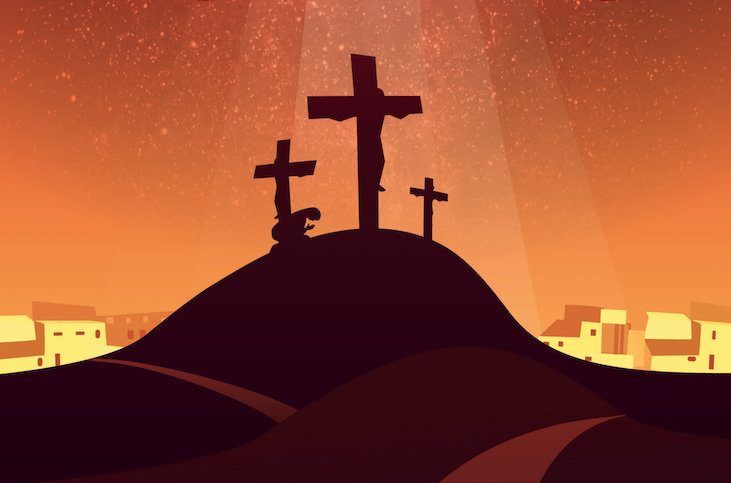“When you die, that’s it. Nothing. Out like a light.” That’s what the man in the pub said, and his mates all nodded, though the one whose mother had died the week before wasn’t really quite so certain. Still, it seemed to make sense.
After all, we know what ‘dead’ means: dead leaves, dead batteries, dead fish, dead pets . . . and dead people, to be honest. While we recognise that it’s all too easy to go from alive to dead, we’ve got serious doubts about the possibility of any return journeys.
Which is why Christians have an uphill task at Easter. Jesus was a great man, and people want to remember how He died. Fair enough. But it starts getting complicated when Christians insist that Jesus died – but didn’t stay dead – in fact, that He’s alive now. That ‘return journey’ has happened, they say.
That’s the problem about Easter, Christians persisting in what sounds like a ridiculous belief. If they just dropped the resurrection bit and concentrated on the wonderful teaching of Jesus and His example of generosity, compassion and love then everybody would find Christianity much more believable. Wouldn’t that make sense? And wouldn’t that fill the churches again?
Well it might (or, more likely, it might not). But in any case, the trouble is that it wouldn’t be Christianity at all. The faith of Christians actually depends on the resurrection of Jesus, and always has done, right from the earliest days.
After the crucifixion the body of Jesus was taken down from the cross by some of His friends and put in a rock tomb with a heavy stone rolled across the doorway. Yet the following Sunday, the third day after His death, His followers claimed that they had met Him, seen Him, talked with Him.
So certain was their belief that nothing could make them recant it. Not ridicule, not torture, not even death itself. They couldn’t deny His resurrection, because they were absolutely convinced that it had happened. Plenty of clever and powerful people at the time had a vested interest in proving them wrong. It shouldn’t have been difficult to prove that a dead man had stayed dead, especially when you have at your disposal the resources of the greatest empire in history. Yet they didn’t do it, because it couldn’t be done.
Still today millions of people all over the world believe that Jesus did in fact rise from the dead. They include brilliant scientists and philosophers as well as plenty of ‘ordinary’ men and women of all ages. They believe it because they respect the witness of those first Christians, and because in many cases their own lives have been transformed by a relationship with Jesus – a relationship that wouldn’t make sense if He were dead!
Christians don’t put their faith in a dead hero from the past, but in someone who is alive and active in their own lives and in the world. That, in a nutshell, is the real message of Easter.

